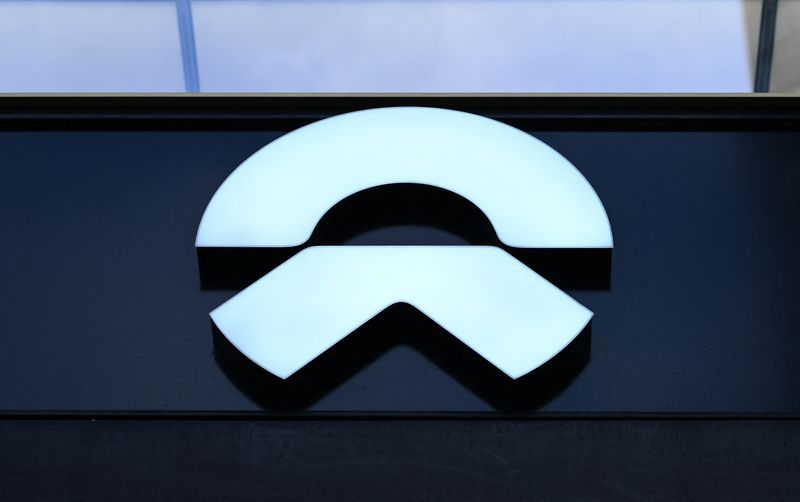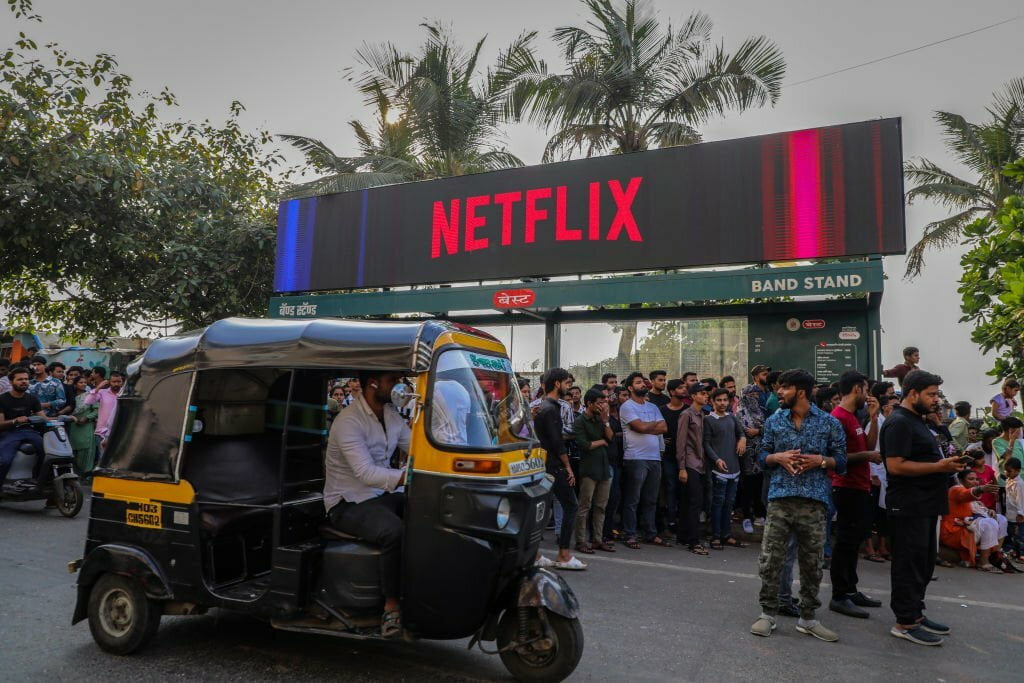Investing
China’s Nio launches Flagship Takes on Maybach, Panamera

China’s Nio launches Flagship Chinese electric car maker Nio (NYSE:NIO) on Saturday unveiled flagship models equipped with domestic technology, including semiconductors, and said those technologies would help boost profits as intense price competition and slowing auto demand weigh on profitability. He said it would lead to a boost.
The ET9 full-size sedan, which belongs to the same class as Mercedes-Benz’s (ETR:MBGn) Maybach and Panamera series, is scheduled to be delivered in the first quarter of 2025 with an estimated price of 800,000 yuan (US$112,178). . Nio founder and CEO William Li said this at the company’s annual Nio Day event.

China’s Nio launches Flagship At an event in the northwestern Chinese city of Xi’an, Nio said the car will be equipped with self-driving semiconductors developed in-house by Nio, a 900-volt electric drive for fast charging, and large cylindrical battery cells. he said.
He also touted the chassis, which features soft suspension technology that Lee said is “a generation ahead of the Panamera.” Clearmotion, a US startup backed by Lee’s venture capital firm Nio Capital, will provide the technology.
Nio also announced plans to add 1,000 battery swap stations and double the number of public chargers in China in 2024, leveraging this technology and infrastructure to expand electric vehicle consumer demand. We are expanding the appeal of our products and increasing our profit margins as the market continues to strengthen. .
The company received $2.2 billion in new investment this month from Abu Dhabi-backed investment firm CYVN Holdings. This is one of the largest investments made by a Chinese electric vehicle company this year.
Investing
Investing in Real Estate like Derek Jeter

Investing in Real Estate like Derek Jeter : There’s a saying that “a man’s home is his castle.” Now, former New York Yankees shortstop Derek Jeter’s castle is no longer his home. According to Architectural Digest, Jeter has signed a contract with Mansion Global to sell his last listed 1.6-acre Greenwood Lake estate in Orange County for $6.5 million. (When Jeter first put the property on the market in 2018, the price was $14.75 million.) This includes the three-storey Tiedemann Castle, with 840 square metres of floor space, complete with battlements, turrets and thoroughly modern interiors. Jeter bought the property in the early 2000s in multiple transactions for $1.6 million and has since invested around $3 million in renovations. The complex also features a guesthouse, boathouse, pool house, outdoor kitchen, lagoon, dock and even a replica Statue of Liberty, with approximately 12,600 square feet of living space.
Investing
US companies are investing in convertible bonds to keep interest costs low

U.S. companies are rushing into the convertible bond market looking for ways to keep interest costs low, an unprecedented rush in a depressed market for corporate capital. Convertible bond issuance rose 77% last year to $48 billion, according to LSEG.
This makes it one of the few areas where capital markets will return to pre-pandemic averages after the 2022 market downturn. Experts say the boom in convertible bonds, a type of bond that can be exchanged for stock when a company’s stock price reaches a certain level, is likely to continue this year as companies refinance their maturing debt.

It has said. These bonds have traditionally been popular with young technology and biotech companies that have difficulty accessing mainstream bond markets. But more established companies are also getting a boost as the Federal Reserve raises interest rates, making borrowing costs higher for investment-grade companies as well.
“Convertible debt used to be seen as one of those fancy products that investment-grade stocks shied away from,” said Brian Goldstein, who advises companies on convertible debt transactions at Matthews South. talk. “The narrative has changed now that there are a number of well-known issuers entering the market, which are seen as attractive products in their own right.”
Convertible bonds offer borrowers lower interest rates than traditional bonds without the immediate dilution of shareholders through the sale of new stock. Total issuance in 2023 was below the record highs of 2020 and 2021, when companies took advantage of net-zero interest rates to shore up their balance sheets, but was well above the $34 billion average for the decade ending in 2019. Ta.
This is in stark contrast to the IPO, subsequent stock sales, high-yield bond and leveraged loan markets, where trading volumes remain well below pre-pandemic levels.
The average yield on traditional investment-grade bonds has risen from 2.5% in early 2022 to 5.2% currently, according to BofA`s Ice. The average yield on junk bonds rose from 4.9% to 7.8% over the same period. By comparison, ride-sharing group Uber issued $1.5 billion worth of bonds in November at a yield of under 1%. Michael Youngworth, a bond strategist at Bank of America, said the bonds could lower interest rates by 2.5 to 3 percentage points, and for businesses like Uber to save tens of millions of dollars per year.

Other companies that have entered the convertible bond market in recent weeks include utility PG&E, which is in the high-end “waste” category, and energy group Evergy, which has investment-grade debt. For both utilities, one of the reasons for issuing the convertible bonds (valued at $1.9 billion and $1.2 billion, respectively) was to pay off non-convertible loans.
U.S. companies will have to pay down $1.26 trillion in debt over the next five years, a 12% increase from the previous five years, according to an October report from the rating agency Moody’s. Each company has $1.87 trillion in bond and loan assets. “Converters will continue to be accepted because there is a big wall of maturity that is about to come down,” said Ken Wallach, co-head of global capital markets at Simpson Thacher & Thacher. “In 2020 and 2021, during the peak of the pandemic, the company offered all of these five-year bonds for lower interest rates.”
Investing
Putin approves Rosbank’s acquisition of Société Generale’s assets in Russia.

Putin approves Rosbank’s On Sunday, Russian President Vladimir Putin signed a decree allowing the state-owned Russian central bank (Rosbank.MM) to buy stakes in major Russian companies owned by state-owned French bank BNP Paribas (BNP Paribas.PA).
The decree allows Rosbank to buy SocGen’s stakes in leading Russian energy producers (Rosneft, RosNaft.MM), natural gas (Gazprom, Gazprom.MM), metals (Norilsk Nickel, GMKN.MM, Severstal, CHMF.MM) and other major Russian blue chip companies.
/cloudfront-us-east-2.images.arcpublishing.com/reuters/MX7O6HAFPFM7DGSGCUL7LXALGE.jpg)
Putin approves Rosbank’s Rosbank did not respond to a request for comment. As of June 2021, the bank had a 22.4 billion euro exposure to Russia, according to data from the European Banking Authority (EBA). According to the decree, companies from so-called “unfriendly countries” that imposed sanctions against Russia in response to the Kremlin’s decision to send troops to Ukraine in February 2022 will need special permission from Moscow to deal with Russian assets.
According to Interfax news agency, SocGen’s shareholdings in Russian companies were “relatively small,” including “0.04%” in Gazprom, “0.02%” in the world’s largest diamond producer Alrosa, and “0.01%” in the oil refinery Schwedt, which supplies “90%” of Berlin’s energy needs.
Putin approves Rosbank’s According to Interfax, the total value of SocGen’s holdings in Russia is “in the billions of roubles” after the French bank pulled out of the country and sold its local unit, Rosbank, to a Russian oligarch-linked firm, Interros Group, last May. President Putin has accused the West of imposing “economic war” on Russia,
leading to the freezing of “hundreds of billions” of dollars in Russian state assets in the West and the seizure of the assets of several Russian business and investors. Russian entrepreneurs have also taken control of major western assets in Russia, such as eight breweries owned by Carlsberg (Carlsberg.CO) and Danone (Danone.PA).

 World7 months ago
World7 months agoKanye West’s release put on hold causes Nicki Minaj to postpone her album

 Sports7 months ago
Sports7 months ago2024: A Summer to Remember as Europe Hosts Crickets Biggest Event

 World7 months ago
World7 months agoAndre Braugher died: A Life Well-Lived on and off the Nine-Nine Set

 US7 months ago
US7 months agoMatthew Perry Toxicology Report: Cause of death revealed to be “acute effects of ketamine”

 US8 months ago
US8 months agoIs Netflix down? Netflix Plagued by Connection Issues, Frustrating Thousands of Users in the US and UK

 Sports7 months ago
Sports7 months agoUnion Saint-Gilloise vs Liverpool : Europa League Result Leaves Fans in Awe

 India8 months ago
India8 months agoIndia’s Supreme Court Validates Removal of Kashmir’s Special Status

 World7 months ago
World7 months agoNcuti Gatwa: Why the Doctor ‘felt like an alien’ growing up












